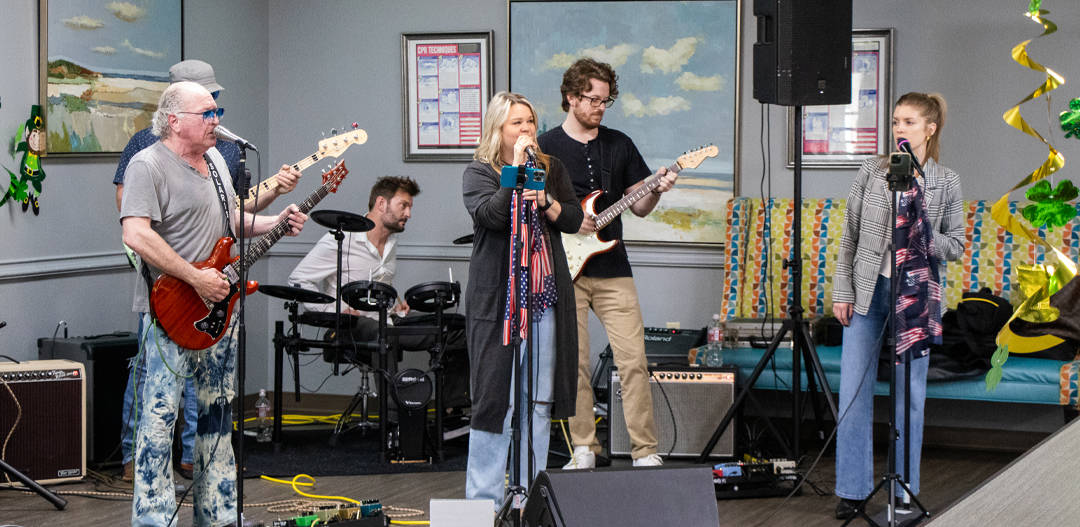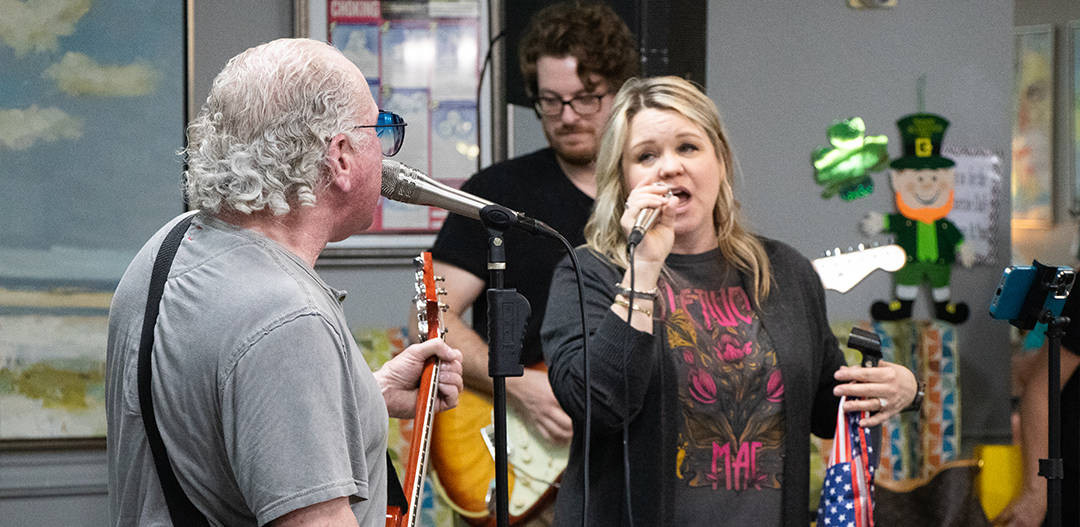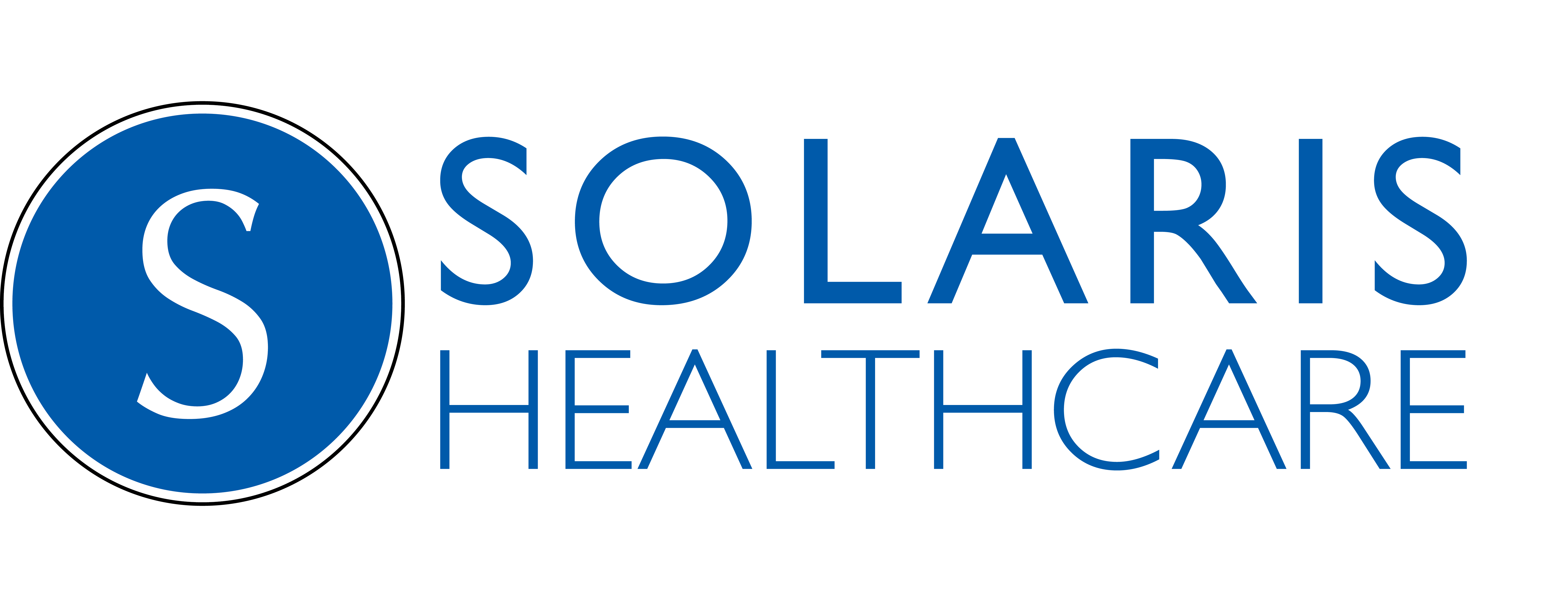The Impact of Music Therapy in Hospice and Palliative Care
Exploring the Healing Power of Music: Enhancing End-of-Life Care through Music Therapy in Hospice and Palliative Settings

The Solaris Band performing at the Grapevine Medical Lodge
Hospice and palliative care aim to provide comfort, dignity, and quality of life to patients facing life-limiting illnesses. In recent years, music therapy has gained recognition as a valuable intervention in these settings, offering a unique and powerful way to enhance the care experience for patients and their families. This article explores the profound impact of music therapy in hospice and palliative care, highlighting its therapeutic benefits and positive outcomes.
The Healing Power of Music in End-of-Life Care
Music has long been recognized for its ability to evoke emotions, memories, and connections. In hospice and palliative care, music therapy harnesses this power to address physical, emotional, social, and spiritual needs, providing holistic support to patients facing terminal illnesses.
Enhancing Quality of Life
Music therapy has been shown to reduce pain perception and improve pain management in hospice and palliative care settings. Listening to soothing music or actively participating in musical activities can distract patients from discomfort, promote relaxation, and release endorphins, natural pain-relieving hormones. According to a randomized controlled trial published in 2015, it was concluded that “music therapy is an effective treatment with a low dropout rate for the promotion of relaxation and well-being in terminally ill persons undergoing palliative care.”¹
Emotional Support:
Music has a profound impact on emotions, offering solace, comfort, and a means of expression for patients navigating complex feelings during their end-of-life journey. Music therapists use personalized playlists, live music sessions, and songwriting techniques to facilitate emotional expression, foster connections, and enhance coping mechanisms.
Quality of Life
Music therapy enhances the overall quality of life for patients in hospice and palliative care by promoting feelings of well-being, reducing anxiety and depression, and improving overall mood. Engaging in musical activities can bring joy, nostalgia, and a sense of purpose, enriching patients’ experiences and creating meaningful moments with loved ones.

The Solaris Band performing at the Grapevine Medical Lodge
Communication and Connection
For patients who may have difficulty communicating verbally, music provides a nonverbal means of expression and connection. Music therapists use improvisation, instrument playing, and singing to facilitate communication, enhance social interactions, and strengthen relationships between patients, family members, and caregivers.
Spiritual and Existential Support
Music has a profound impact on spiritual and existential dimensions, offering comfort, solace, and a sense of transcendence. Music therapy interventions, such as guided imagery, sacred music, and reflective listening, can support patients in exploring their beliefs, finding meaning and peace, and addressing existential concerns related to life and death.
Family and Caregiver Support
Music therapy extends its benefits to family members and caregivers, offering them opportunities for relaxation, stress reduction, and emotional expression. Shared musical experiences create bonds, facilitate communication, and foster a supportive environment for everyone involved in the care process.
The impact of music therapy in hospice and palliative care is profound and multifaceted, addressing physical, emotional, social, and spiritual needs while enhancing the overall care experience for patients, families, and caregivers. As a non-invasive, person-centered intervention, music therapy complements traditional medical approaches, promoting holistic well-being and dignity in end-of-life care. Its therapeutic benefits extend far beyond entertainment, making it an invaluable component of comprehensive palliative care services.
Article Refrences:
1. Warth, Marco et al. “Music Therapy in Palliative Care.” Deutsches Arzteblatt international vol. 112,46 (2015): 788-94. doi:10.3238/arztebl.2015.0788
Share:
Search Resources
ADDITIONAL RESOURCES
LEARN ABOUT OUR CARE SERVICES:
PALLIATIVE CARE →
INDUSTRY TRUSTED




